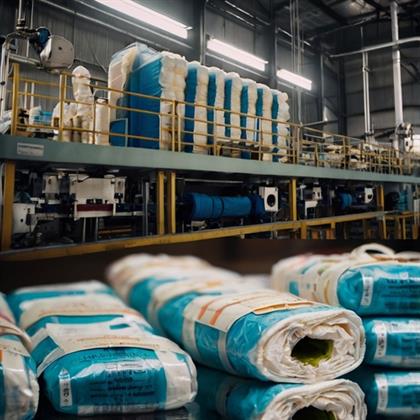
Analyzing the Mexico Waste Management Market 2031: Trends, Challenges, and Opportunities
June 25, 2024
The Mexico Waste Management Market is poised for significant growth by 2031, driven by various economic, environmental, and regulatory factors. As the country continues to urbanize and industrialize, the need for effective waste management solutions becomes increasingly critical. This article delves into the key trends, challenges, and opportunities shaping the waste management landscape in Mexico.

Current State of the Market
As of 2024, Mexico generates approximately 44 million tons of waste annually, with projections indicating a steady increase over the coming years. Municipal solid waste (MSW) constitutes the majority, driven by population growth and rising consumption patterns. The government has implemented several policies aimed at improving waste management practices, yet significant challenges remain.
Key Trends Shaping the Market
1. Technological Advancements: The adoption of advanced waste processing technologies, such as automated sorting systems and waste-to-energy (WTE) plants, is gaining traction in Mexico. These innovations enhance the efficiency of waste collection, segregation, and disposal, thereby reducing the environmental impact.
2. Circular Economy Initiatives: Mexico is increasingly embracing the circular economy model, which emphasizes recycling and reusing materials to minimize waste. Companies and municipalities are investing in recycling infrastructure and promoting awareness campaigns to encourage citizens to adopt sustainable practices.
3. Regulatory Developments: Stringent environmental regulations are being enforced to ensure compliance with international standards. The Mexican government is enhancing its regulatory framework, focusing on reducing landfill dependency and promoting sustainable waste management solutions.
Challenges in the Mexico Waste Management Market
1. Infrastructure Deficiencies: Despite progress, Mexico still faces significant infrastructure gaps in waste collection and disposal. Many regions lack adequate facilities for recycling and proper landfill management, leading to environmental contamination and health hazards.
2. Financial Constraints: Limited financial resources hinder the development and maintenance of modern waste management systems. Municipal budgets are often stretched thin, making it challenging to invest in necessary infrastructure and technologies.
3. Public Awareness and Participation: A significant portion of the population remains unaware of proper waste disposal practices. This lack of awareness contributes to improper waste management, such as illegal dumping and inadequate segregation at the source.
Opportunities for Growth
1. Private Sector Participation: Encouraging private sector involvement through public-private partnerships (PPPs) can address funding and expertise gaps. Private companies can bring in innovative solutions and efficiencies that enhance the overall waste management system.
2. Investment in Recycling: Expanding recycling programs and facilities presents a lucrative opportunity. By capitalizing on the recyclable materials market, Mexico can reduce its reliance on landfills and generate economic benefits from recovered resources.
3. Education and Awareness Campaigns: Implementing comprehensive education campaigns can significantly improve public participation in waste management initiatives. Schools, communities, and media can play a pivotal role in fostering a culture of responsible waste disposal.
Future Outlook
The Mexico Waste Management Market is on a transformative journey, with substantial potential for growth by 2031. With concerted efforts from the government, private sector, and civil society, Mexico can overcome its current challenges and establish a sustainable waste management system. By prioritizing technological innovation, regulatory compliance, and public engagement, the country can achieve its waste management goals and contribute to global environmental sustainability.
You Might Like Also

Forecasting the Future of the Adult Diaper Market 2031

The Future of Advertising: In-Game Advertising Market 2031

The Future of the Wireless Charging Market by 2031

The Future of the Portable Generator Market 2031

The Future of Smart Sensors and Their Market Growth by 2031















